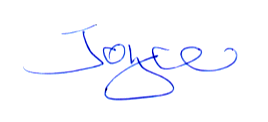We’re all feeling vulnerable these days so if you’re an older adult feeling that way, you’re certainly not alone. In fact, a new campaign called Catch the Scam, launched by HomeEquity Bank, reports that in an Ipsos-commissioned survey 91% of Canadians 55 years of age or better believe they are now more vulnerable to scams.
Since the onset of the COVID-19 pandemic, 70% of the general public say there has been an increase in coronavirus-related scams and one in three Canadians 55 years or better admit that they’ve fallen victim to a scam.
In the last month, I’ve been barraged by scam callers. Every morning for weeks now I receive two calls on my mobile phone with a recorded message saying that I’ve failed to pay my taxes to the Canadian Revenue Agency and if I don’t press “1” on the dial pad to discuss my transgressions with a “Service Canada” representative, legal action will be taken against me. The anonymous caller on the other end of the line informs me in a stern voice that he knows my SIN (Social Insurance Number).
If you’re one of the many who has received this call or ones like it, my advice is to hang up. First of all, the CRA does not make phone calls of this nature. According to the CRA website called “Slam the Scam:”
The CRA will never
- ask for information about your passport, health card, or driver’s license
- demand immediate payment by Interac e-transfer, bitcoin, prepaid credit cards or gift cards from retailers such as iTunes, Amazon, or others
- use aggressive language or threaten you with arrest or sending the police
- leave voicemails that are threatening or give personal or financial information
If you’re concerned or have been the victim of these scammer calls and others like them, also check out this Government of Canada website or HomeEquity bank’s video that will help you to determine if calls are frauds and scams.
HomeEquity Bank’s Campaign can help us. As BNN Bloomberg reports, “It features Frank W. Abagnale, the former con artist portrayed by Leonardo DiCaprio in the movie “Catch Me If You Can.” Abagnale is now a financial fraud expert. He’s working with HomeEquity Bank on an online video series on how to detect scams, which have bilked Canadians out of $54-million so far this year.”
In his interview with Yahoo Finance Canada about HomeEquity Bank’s campaign, Abagnale reveals his methods of detecting scams.
I urge you to take the time to visit this website. It gives straightforward, first-hand knowledge on how to detect scams. After I read it, I felt less vulnerable and a number of friends I shared these links with said they felt the same.
Here are the two red flags that Mr. Abagnale points out every scam must have to work: “They have to be there for the scam to work, and the red flag is very simple. At some point in the scam, I’m going to ask you for money, and I’m going to tell you it has to be immediate and you have to give me a credit card over the phone, you have to give me your bank account number, you have to go down to Walmart and give me a green card and call me back with the number on the back. It has to be right this moment,” signals Abagnale.
“The other red flag is that at some point I’m going to ask you for information, so I’m going to ask you what your social security number is, your date of birth, your mother’s maiden name, your bank account number, your credit card number, the number on the back of your credit card. That has to happen at some point.”
If you’re vigilant and on the look-out for these two red flags, the chance of being taken advantage of is greatly minimized.
*****
Right now we’re in the midst of a raging pandemic with a second-wave predicted by leading epidemiologists in Canada and abroad. Many of us, including myself, have underlying conditions, which keep us in self-isolating mode. While the rest of Canada has moved onto stage 3 where folks can mingle in large bubbles, sit on restaurant patios or even dare to dine inside a restaurant or watch a film in a movie theatre, we’re still stuck at home. Except for a two-week holiday in eastern Ontario where there were no COVID cases, I stay home, or go for walks in the country.
Since last winter on March 13, when I last visited my hairdresser, I’ve only been in one store. A Shopper’s Drug Mart, to cash in the hundreds of points I’ve accumulated during the pandemic. Even my hairdresser visits my home to cut my hair. We both wear masks and sit outside on my deck for the hair cut.
On top of that, for many, the virus has altered our ability to visit our doctors, or to undergo medical tests. Possibly our financial plans for retirement are undermined. Don’t be surprised or embarrassed if all these difficult-to-adjust-to alterations in our lives make us anxious or open to the easy, but false solutions of scammers.
HomeEquity Bank’s campaign was created to help us fight back against fraudsters and criminal activity. Check it out. Email this link to your friends. Discuss it online and on the telephone with others who feel vulnerable. I like to think of this battle against fraud as “The Retirees Wall of Resistance.” The more knowledgeable we are, the safer we are from the schemes of the scamming experts.
 |































